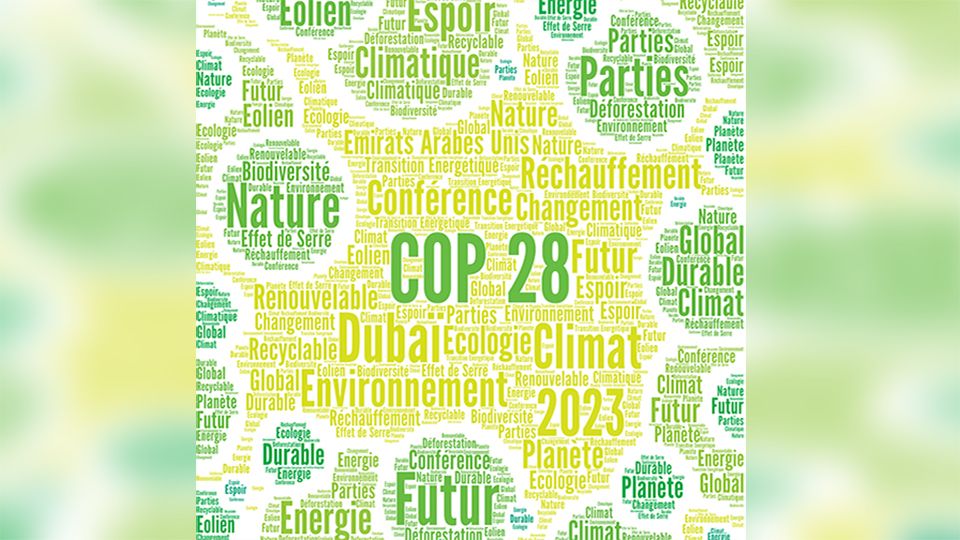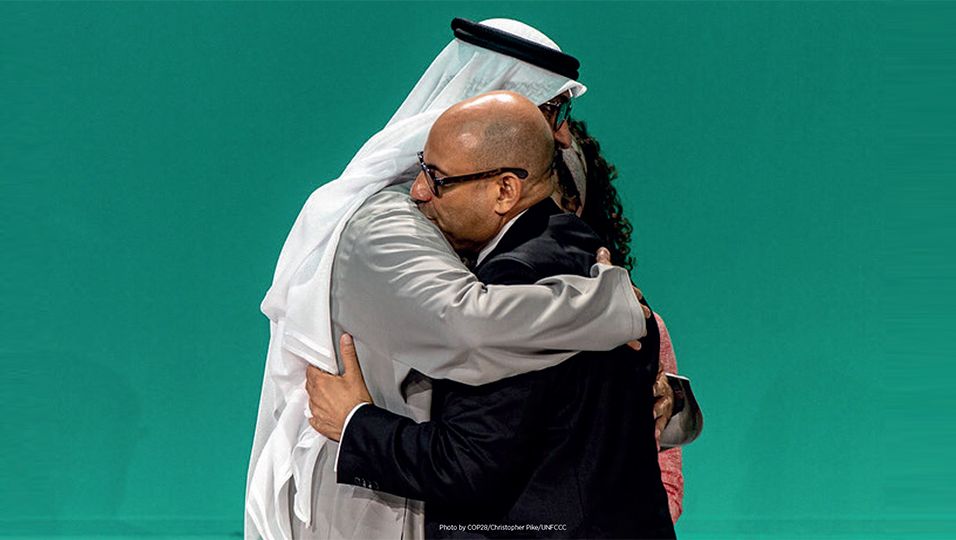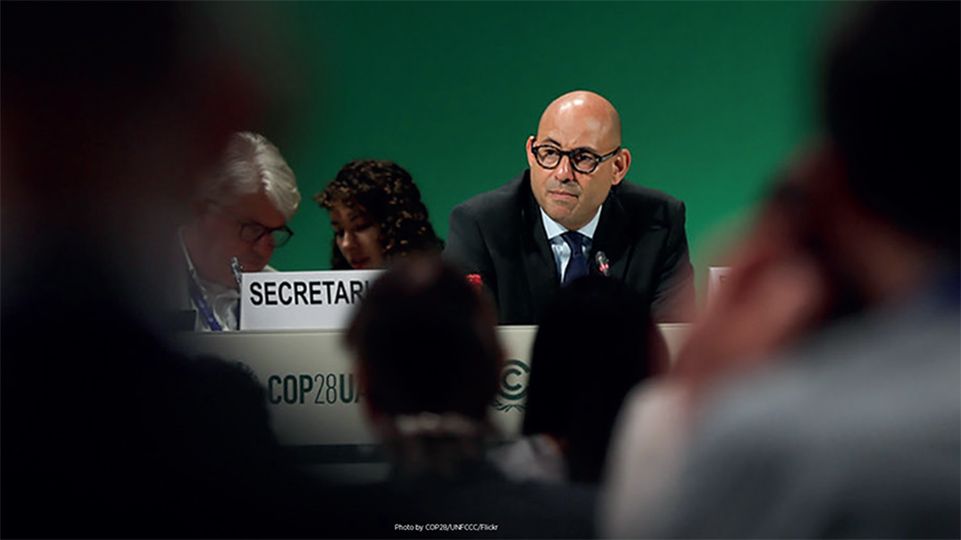Anger over a lack of focus on the need to phase out fossil fuels dominated pre-COP28 climate talks in October, from both climate activists and the private sector, amid more concern about human rights abuses in host country the UAE.
Companies including Nestle, Unilever, Mahindra Group and Volvo Cars are urging political leaders to agree a timeline at COP28 to phase out fossil fuels, Reuters reported on 23 October.
The 131 companies, which have nearly $1trn in global annual revenues, published in a letter that attendees at the COP28 summit must commit to reach 100% decarbonised power systems by 2035 for richer economies, and help developing countries financially so they can ditch fossil fuels by 2040 at the latest.
The businesses “are feeling the impacts and cost of increasing extreme weather events resulting from climate change,” the companies wrote in the letter, which was coordinated by the non-profit We Mean Business Coalition, which is pushing for greater climate action globally.
“To decarbonise the global energy system, we need to ramp up clean energy as fast as we phase out the use and production of fossil fuels,” they wrote.
Loss and damage
On 21 October, the South China Morning Post reported global ‘loss and damage’ climate talks had ended in failure ahead of COP28.
At last year’s COP27, nations agreed to set up a fund to help vulnerable countries cope, but left the details for later. But nations from the global north and south were unable to reach an agreement at Saturday’s vital meeting ahead of COP28, sources said.
A series of talks held this year have tried to tease out consensus on fundamentals like the structure, beneficiaries and contributors – a key issue for richer nations who want China to pay into the fund.
Human rights
Disparities between rich and poor are also on display in the UAE itself as it seeks to build the infrastructure needed to host the COP28 talks. On 20 October the Guardian reported how migrant workers are toiling in perilous heat to prepare for the climate talks summit in the Emirates.
FairSquare, a human rights research and advocacy group, obtained evidence of more than a dozen migrant workers from Africa and Asia labouring outside at three COP28 sites in early September as temperatures hit 42C (107F) in Dubai.
According to visual evidence and testimonies obtained by researchers, the migrants were toiling in extreme heat and humidity on two separate days last month during the “midday ban” – a UAE law banning outdoor work during the hottest hours over the summer months to protect outdoor workers from heat exposure that can be fatal.
Fossil fuel omission
Also on 20 October, COP28 president-designate Dr Sultan Ahmed Al Jaber, the UAE’s minister of industry and advanced technology and special envoy for climate, told delegates at the Arctic Circle Conference: “The Arctic is the front line of climate change in a very real sense. We must keep our eye on the Polar Star – the 1.5-degree target,” High North News reported.
Al Jaber added: “Greenland’s ice sheet is losing 280 billion tonnes of mass each year – and that the sea level is rising at a dangerous rate. If only a quarter of the Greenlandic ice sheet melts, it could lead to the ocean rising two meters. This would be devastating – not only for the Arctic region but for coastal communities, lives, and livelihoods across the world.”
However just a few days before Al Jaber’s speech, Health Policy Watch reported on 18 October how a draft “health and climate ministerial declaration” set to be released at the upcoming COP28, omits any reference to fossil fuels and their health harms.
While the declaration mentions the need for climate mitigation, as well as the related health harms of air pollution in passing, the language and commitments focus mostly on the “adaptation” of health systems to climate change – omitting any reference to fossil fuels, widely recognised as the leading driver of climate change.
This is despite the month having kicked off with strong words from the CEO of the Institutional Investors Group on Climate Change, Stephanie Pfeifer, who on 5 October sent a letter to COP28 president Al Jaber calling for ambitious outcomes at COP28.
Specifically, she urged the COP28 president to focus on phasing out fossil fuels, building resilience and reducing vulnerability, and the scaling up and aligning of finance for climate action.









